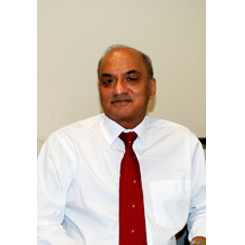Bio

CV
Publications

Presentations

Calendar

Announcements

Classes

This course is expected to meet the curricular needs of students in the medical pathway intending to enter the College of Medicine at Alfaisal University. The course will concentrate on factual and applied content knowledge in Molecular Biology and Biochemistry. The expectation is that students have concurrently registered for Preparatory Human Structure and Function. .
It is expected that students develop a broad, general understanding of the principles and concepts of molecular and cellular biology, and biochemical pathways related to carbohydrate, lipid and protein metabolism.
In addition students must understand the relationship of structure to function and should appreciate that structures permit some functions while, at the same time limit others.
At a content/factual level, students will appreciate that some molecules (for example, enzymes, amino acids, nucleic acids and ATP) are ubiquitous, and so are processes and structures.
Lastly, students will gain an understanding of equilibrium and homeostasis in biological systems; they will recognize that disease and ill-health is a result of homeostatic imbalance.
The field of medical science and medical education has accumulated huge amounts of information about human systems biology including anatomy, physiology and molecular medicine (biochemistry, immunology, microbiology etc.), this course will concentrate on knowledge (factual content, understanding processes and concepts), applied and critical cognitive skills (problem based learning, and situated and experiential learning.
The course will cover (but is not restricted to)
1. Introduction to Anatomy
2. Human Systems Physiology
It is expected that students will develop a broad, general understanding of the principles and concepts of human physiology, and understand the relationship of structure to function. Students will appreciate that structures permit some functions while; at the same time limit others.
At a content/factual level, students will appreciate that some molecules (for example, enzymes, amino acids, nucleic acids and ATP) are ubiquitous, and so are processes and structures. Lastly, students will gain an understanding of homeostasis in physiological systems; they will recognize the checks and balances that exist in living processes.

